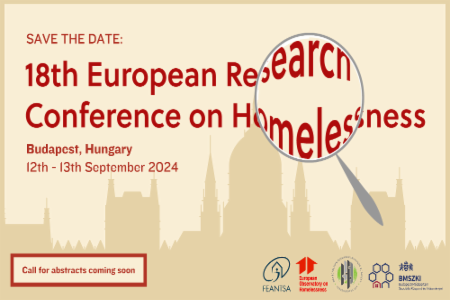Homelessness cannot be just another ‘Fact of Life’ in the EU
An opinion piece by Nicolas Schmit, Ana Mendes Godinho and Yves Leterme.
Homelessness is increasing across the EU. It’s time for the Commission and governments to turn the tide, write Nicolas Schmit, Ana Mendes Godinho and Yves Leterme.
Nicolas Schmit is the European Commissioner for Jobs and Social Rights; Ana Mendes Godinho is Minister of Labour, Solidarity and Social Security in Portugal; Yves Leterme is Goodwill Ambassador for the Fight against Homelessness in Europe
Homelessness is on the rise in the European Union with numbers increasing consistently in 24 Member States over the past decade. Studies reveal that at least 700,000 people are homeless on any given night in the EU, 70% more than a decade ago. Something has gone drastically wrong.
COVID-19 has demonstrated beyond all possible doubt how essential a decent home is to health and well-being; and how vulnerable homelessness makes both individuals and societies. But homelessness is often seen as an unfortunate ’fact of life’. This implicitly means accepting that every single night, in the second largest economy in the world, men, women, and children sleep on the streets, in cars, tents or emergency accommodation. It means accepting the dire consequences for their health, well-being, and inclusion in society. But there is nothing acceptable about homelessness. It is a profound assault on dignity, belonging, and life itself. It is fundamentally irreconcilable with the EU’s objectives of social progress and is impossible to square with any vision for Europe’s social model.
During the COVID-19 crisis, many public authorities took extraordinary measures to address homelessness and many provided thousands of homeless people with emergency housing. Brussels, for example, opened 700 places in 11 hotels to house homeless people, proving that in a crisis the seemingly impossible can become possible. These short-term solutions, such as providing emergency shelter, winter programmes, temporary accommodation, prove essential in times of emergency, but also underline the need for systemic change to eradicate homelessness.
Let us be clear: though complex, homelessness is not insurmountable and can be overcome. Ending homelessness requires resolute action addressing its root causes, and investing in prevention and empowerment strategies. Responsibility lies primarily on national, regional and local authorities. In many parts of Europe, several successful programmes are sources of inspiration. The Finnish strategy, based on the Housing First and Housing Led programmes are examples of effective action on homelessness.
The European Union also has an important role to play: it can rally all interested stakeholders around a shared goal, galvanise the political commitment of Member States, facilitate exchange of best practice and support the scale-up of evidence-based policies via the EU budget. This very same ambition is enshrined in Principle 19 of the European Pillar of Social Rights, which underlines the need to develop services securing the social inclusion of homeless people.
Next year, the European Commission will launch an Action Plan to deliver on the European Pillar of Social Rights. This will be a unique opportunity to strengthen the EU’s role in the fight against homelessness and make Principle 19 of the Social Pillar a reality. We stand ready to promote a European collaboration platform as of 2021 by bringing stakeholders together; we will work with EU governments and stakeholders to make a decisive impact during the mandate of this Commission; and we will welcome the participation of all those committed to decisive and permanent change.
This opinion piece was published in English in Euractiv, in French in Le Soir, and in Portuguese in Expresso.





